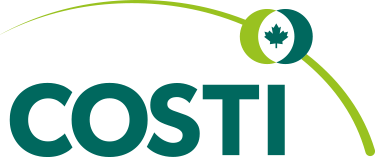Counselling
COSTI’s Family and Mental Health Services offers culturally competent and confidential counselling services in a supportive environment to diverse communities, couples and families in Toronto and York Region. The centres are staffed with skilled professional counsellors who provide help and support with issues ranging from anxiety, depression, and stress management to relationship and family problems, parent/child conflict, parenting, communication, separation, divorce, sexual abuse and childhood trauma, and elder care.
Services Available
- One-to-one counselling
- Couples counselling
- Family counselling
- Referrals to community supports and services such as the Community Care Access Centre, Community Occupational Therapist Association, etc
- Legal aid clinic with lawyers available
- Case consultation to service providers
- Women’s Support Group, for women diagnosed with depression
- Education and outreach to diverse communities on social issues
- Family Education Workshops on depression, anxiety, etc
Who is Eligible
Services are available to members of diverse communities residing in the Greater Toronto area and York Region.
Program Intake
Monday, Tuesday, Thursday and Friday 8:30 am to 4:30 pm and Wednesday 8:30 am to 9:00 pm. Services are also available at COSTI's Vaughan Centre. Please call directly for an appointment.
This Program is Located at:
Sheridan Mall, 1700 Wilson Avenue, Suite 105
Toronto, ON M3L 1B2
Phone: 416.244.7714 | famcounselling@costi.org
3100 Rutherford Road, Suite 102
Vaughan, ON L4K 0G6
Phone: 905.669.5627 | vaughanemployment@costi.org
Fees are on a sliding scale that is geared to income, but services will not be denied due to an inability to pay.
COSTI's Counselling Services are funded by the United Way Greater Toronto.
Related Resources
View Workshop Calendars
Symptoms of Depression
Symptoms of Depression include:
- Significant changes in appetite and weight over a short period of time
- Sleep problems; sleeping too little or too much
- Loss of interest in work, hobbies, people
- Feelings of uselessness, hopelessness, excessive guilt
- Preoccupation with failure(s) or inadequacies
- Agitation or loss of energy
- Slowed thinking, forgetfulness, trouble
concentrating and making decisions - Decreased sexual drive
- Tendency to cry easily, or having the urge to cry but unable to do so
- Excessive concern about physical complaints
- Thoughts of death and/or harming self
- At times, a loss of touch with reality, perhaps hearing voices (hallucinations) or having strange ideas (delusions)
When You Need Support – Numbers to Call
Does Your Partner Ever:
- Scare you in any way?
- Call you names?
- Repeatedly make you late for or miss work?
- Force you to have sex?
- Not allow you to visit your friends or family?
- Threaten to take away or hurt your children?
- Check-up on you while you’re at work?
- Hit, slap, push or hurt you?
The Assaulted Women’s Help Line: 416.863.0511
Women’s Habitat of Etobicoke Shelter: 416.252.5829
Yellow Brick House: 905.727.1944
Barbra Schlifer Commemorative Clinic: 416.323.9762
Multilingual Community Interpreter Services: 416.426.7051
The first thing to remember, for all emergency situations that require an immediate response, call the police emergency number — 9-1-1.175
Books on Domestic Violence, Trauma and Sexual Assault
- Your Surviving Spirit: A spiritual workbook with trauma, by Dusty Miller.
- A Woman Like You: The face of domestic violence. (1997) Seal Press.
- Surviving Domestic Violence: Voices of women who broke free. (1999) Elaine Weiss.
- Learning to Leave: A woman's guide. (1993) Richard Peacock, Lynette Triera.
- Dangerous Relationships: How to stop domestic violence before it stops you. (1997) Noelle Nelson.
- Breaking Free from Partner Abuse: Voices of Battered Women Caught in the Cycles of Domestic Violence. (1999) Mary Marecek.
- Breaking the Cycle: A parenting guide for single mothers of children who have witnessed domestic violence. (1997) Angela Henderson, Janet Eriksen, Margot Davisson & Sarah Odgen.
- I Can’t Get Over It: A handbook for trauma survivors. (1992) Matsakis R. 176









